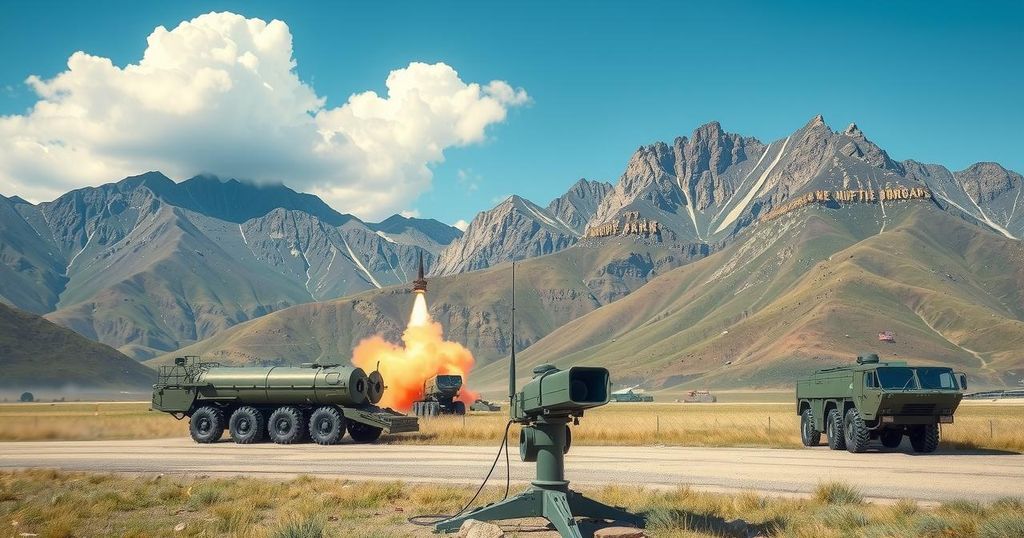World news
ASIA, BIDEN ADMINISTRATION, BLOOMBERG, DEFENSE, ENERGY INFRASTRUCTURE, EUROPE, EUROPE/ASIA, HWANGHAE, HWANGHAE PROVINCE, JOINT CHIEFS OF STAFF, KIM JONG UN, KOREA, NORTH, KOREA, SOUTH, MILITARY, NORTH AMERICA, NORTH KOREA, NORTH KOREAN, NUCLEAR WEAPONS, PACIFIC, PYONGYANG, RUSSIA, SEOUL, SOUTH KOREA, SOUTH KOREAN JOINT CHIEFS OF STAFF, TRUMP, UKRAINE, UNITED STATES, US, VLADIMIR PUTIN, WAR, WHITE HOUSE, YONHAP, YONHAP NEWS
Fatima Khan
0 Comments
North Korea Conducts First Ballistic Missile Launches Since Trump’s Return
North Korea has launched several ballistic missiles, the first since Trump took office, in response to US-South Korea military exercises. At least two missiles were identified as likely short-range. This action reflects ongoing military efforts amid North Korea’s alliances with Russia and a politically unstable South Korea.
North Korea has conducted missile launches from its western coast, marking the first such activity since Donald Trump resumed his presidency. Reports from Bloomberg indicate that North Korea remains defiant about its missile testing, denoting a continued emphasis on military capabilities despite international discussions. The South Korean Joint Chiefs of Staff confirm that at least two missiles were fired from Hwanghae Province, though specific details regarding their quantity and type remain sparse. It is believed that they are short-range ballistic missiles, according to Yonhap News.
These missile launches occurred shortly after North Korea condemned the joint military exercises conducted by the United States and South Korea, which commenced on March 10 and were labeled by Pyongyang as a rehearsal for war. In response, South Korea’s military has increased its monitoring efforts and maintained a readiness posture in unison with the United States. Historically, North Korea has refrained from commenting on missile tests until the following day.
The ongoing US-South Korea Freedom Shield 25 exercise is scheduled to conclude on March 20 and follows North Korea’s intensified military collaboration with Russia. These military drills are the first of their kind since Trump’s return to the presidency and coincide with North Korea’s explicit threats to enhance its nuclear arsenal. Earlier this year, Kim Jong Un oversaw the launch of a strategic cruise missile, further emphasizing the North’s commitment to developing its military capabilities.
During Trump’s initial term, he halted or diminished certain major military exercises with South Korea after initiating talks with Kim, although these discussions ultimately did not yield tangible results. Kim’s rhetoric suggests that confrontation with perceived hostile nations remains unavoidable, urging an expansion of nuclear capabilities for North Korea.
This missile launch event unfolds within a backdrop of political instability in South Korea, stemming from President Yoon Suk Yeol’s brief implementation of martial law and his subsequent political challenges. Many recent missile trials have involved Hwasong-11 systems, capable of carrying heavy armaments, including nuclear warheads. Allegations persist that North Korea has transferred missile technology to Russia to bolster its military efforts in Ukraine, further tightening its alliance with Putin’s regime.
Reportedly, South Korea’s intelligence estimates that North Korea has dispatched additional forces to support Russian military operations, building on thousands of troops already sent in the previous year. This development raises significant concerns about North Korea’s military trajectory and its potential for collaboration in global conflicts.
In summary, North Korea’s recent ballistic missile launches post-Trump’s inauguration reflect its unwavering pursuit of military advancements amidst heightened geopolitical tensions. Coinciding with the US-South Korea military exercises and ongoing political uncertainty in Seoul, these developments underscore the strategic interdependencies formed between North Korea and Russia. As international stakeholders monitor these dynamics, the implications for regional security remain profound.
Original Source: newsukraine.rbc.ua




Post Comment